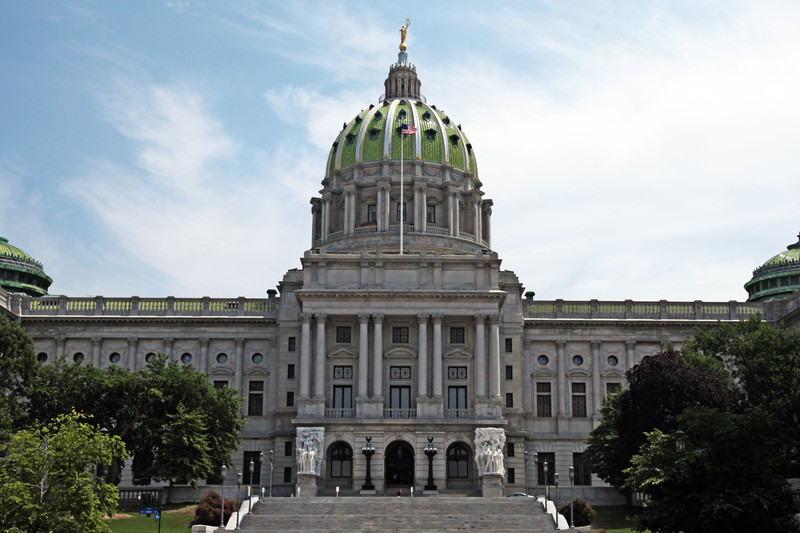






Pennsylvania Senate Finally Passes Legislation That Would Legalize Online Poker SitesLegislation Goes Back To House For Review |
|
|

Finally.
A gambling expansion package that includes online casino regulation cleared the Pennsylvania Senate on Wednesday. The vote was 38-12. Pennsylvania officials have met nearly 100 times since 2015 to talk about gambling expansion.
It was the first time the Keystone State Senate approved online poker, and the legislation now returns to the House for lawmakers there to take a look at it in the coming weeks. Pennsylvania Senators amended the omnibus bill that also includes regulation of daily fantasy sports and authorization of online lottery sales.
House lawmakers have advanced measures for online gaming regulation several times in the past, with the Senate always letting the legislation fall by the wayside—until now.
The bill was fast-tracked thanks to a lingering tax issue between the state’s 12 casinos and their host communities. Lawmakers were tasked with finding a way to keep revenue flowing to local communities with a casino.
Under the bill, a license to offer online poker would cost $5 million and revenues from those games would have a 16 percent tax, while house-banked online casino games would be subjected to a 54 percent rate and also require a $5 million license.
The move comes at a time when Pennsylvania’s casino industry isn’t growing all that much. The state lies in a region with a lot of gaming expansion from states like New York, Maryland and Massachusetts.
 Pennsylvania’s casino industry won an all-time high $3.2 billion from gamblers last year, but that was less than two percent more than gaming revenue in 2012. The state’s casinos have won more than $26 billion from gamblers since the first casino opened.
Pennsylvania’s casino industry won an all-time high $3.2 billion from gamblers last year, but that was less than two percent more than gaming revenue in 2012. The state’s casinos have won more than $26 billion from gamblers since the first casino opened.
Online gaming is expected to add about $300 million to the state’s gambling market when the industry reaches maturation, which could take several years after launch.
The state’s two largest casinos in terms of gaming win, Sands Bethlehem and Parx, have opposed online gaming. It’s likely that Parx would venture into that space, while Sands is unlikely thanks to Sheldon Adelson’s commitment to opposing the activity.
There were reports Wednesday that MGM Resorts’ deal to buy Sands is off, which is a big development because MGM supports online gaming efforts in places like New York and Michigan.
One of Pennsylvania’s neighbors is New Jersey, which has had online casinos since 2013. The Garden State market last year was about $200 million. Online poker is declining in New Jersey, while the house-banked games are growing rapidly with year-over-year growth of 30 percent.
Online poker needs liqudity to work, and Pennsylvania would likely need to share players with New Jersey in order to create a robust online poker market. The Pennsylvania legislation would allow the state to enter into online poker deals.
Regulated online poker in Pennsylvania could be a catalyst for New York finally pulling the trigger on its online poker bill. A three-way liquidity sharing deal between Pennsylvania, New Jersey and New York would be great for the poker community.
In April, Pennsylvania casinos took in $5.05 million from poker; New York commercial poker rooms raked nearly $900,000; and New Jersey had $4.79 million in poker revenue (live and online).
